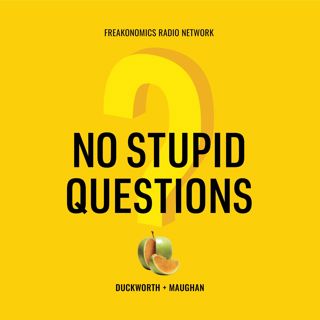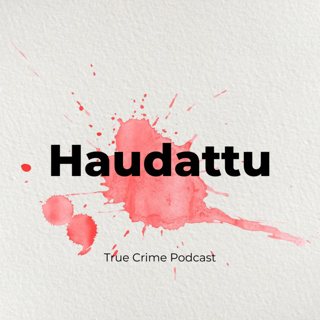
177. What Does Success Look Like?
What matters more: meeting our own ambitions, or winning fame and glory? What’s it like to earn a gold medal at the Olympics? And why didn’t Mike’s grandfather get a watch? SOURCES:Alain de Botton, writer and founder of The School of Life.Kirk Flatow, head coach of co-ed varsity track and field at Monta Vista High School.Katie Ledecky, competitive swimmer.Diana Nyad, long-distance swimmer.Michael Phelps, former competitive swimmer.Martin Seligman, professor of psychology at the University of Pennsylvania.Kerri Walsh Jennings, professional beach volleyball player.John Wooden, men's basketball coach at the University of California, Los Angeles. RESOURCES:"Why Success Doesn’t Lead to Satisfaction," by Ron Carucci (Harvard Business Review, 2023)."Katie Ledecky Matches Michael Phelps Record With Dominant World Championships Win," by Patrick Andres (Sports Illustrated, 2023).Success Index, by Populace and Gallup (2019)."PERMA and the Building Blocks of Well-Being," by Martin Seligman (The Journal of Positive Psychology, 2018)."Michael Phelps: ‘I Am Extremely Thankful That I Did Not Take My Life,’" by Susan Scutti (CNN, 2018)."The PERMA-Profiler: A Brief Multidimensional Measure of Flourishing," by Julie Butler and Margaret L. Kern (International Journal of Wellbeing, 2016)."Diana Nyad: Dream Accomplished," by Michel Martin (Tell Me More, 2013)."A Kinder, Gentler Philosophy of Success," by Alain de Botton (TEDGlobal, 2009)."The Difference Between Winning and Succeeding," by John Wooden (TED, 2001). EXTRAS:"Where Is the Line Between Exaggeration and Lying?" by No Stupid Questions (2023)."Is a 'Success Hangover' Real?" by No Stupid Questions (2022). Hosted by Simplecast, an AdsWizz company. See pcm.adswizz.com for information about our collection and use of personal data for advertising.
7 Tammi 202437min

63. How Contagious Is Behavior? With Laurie Santos of “The Happiness Lab.” (Replay)
Why do we mirror other people’s accents? Does DJ Khaled get tired of winning? And also: life is good — so why aren’t you happy? SOURCES:Albert Bandura, professor emeritus of psychology at Stanford University.John Bargh, professor of psychology and cognitive science at Yale University.Tanya Chartrand, professor of marketing at Duke University.Clay Cockrell, psychotherapist and founder of Walk and Talk Therapy.Iain Couzin, director of the department of collective behavior at the Max Planck Institute of Animal Behavior.William Irvine, professor of philosophy at Wright State University.Daniel Kahneman, professor emeritus of psychology at Princeton University.Stephen Kosslyn, professor emeritus of psychology at Harvard University.Cristine Legare, professor of psychology at the University of Texas at Austin.Kevin Ochsner, professor of psychology at Columbia University.Amos Tversky, professor of psychology at Stanford University. RESOURCES:"How to Escape the Hedonic Treadmill and Be Happier," by Anna Katharina Schaffner (Positive Psychology, 2016).“Revealing the Hidden Networks of Interaction in Mobile Animal Groups Allows Prediction of Complex Behavioral Contagion,” by Sara Brin Rosenthal, Colin R. Twomey, Andrew T. Hartnett, Hai Shan Wu, and Iain Couzin (PNAS, 2015).“A Calm Look at the Most Hyped Concept in Neuroscience — Mirror Neurons,” by Christian Jarrett (WIRED, 2013).“The Chameleon Effect: The Perception–Behavior Link and Social Interaction,” by Tanya Chartrand and John Bargh (Journal of Personality and Social Psychology, 1999).“Prospect Theory: An Analysis of Decision Under Risk,” by Daniel Kahneman and Amos Tversky (The Econometric Society, 1979).“Transmission of Aggression Through Imitation of Aggressive Models,” by Albert Bandura, Dorothea Ross, and Sheila A. Ross (Journal of Abnormal and Social Psychology, 1961). EXTRAS:"Why Are Rich Countries So Unhappy?" by No Stupid Questions (2022)."Do You Mind if I Borrow Your Personality?" by No Stupid Questions (2022).“Episode 2: The Unhappy Millionaire,” by The Happiness Lab (2019).The Happiness Lab. Hosted by Simplecast, an AdsWizz company. See pcm.adswizz.com for information about our collection and use of personal data for advertising.
31 Joulu 202336min

176. Why Is It So Hard to Make Decisions?
Why do we get overwhelmed when we have too many choices? Should we make our own decisions or copy other people's? And how can Angela manage her sock inventory? SOURCES:Arie Kruglanski, professor of psychology at the University of Maryland, College Park.Katy Milkman, professor of operations, information, and decisions at the University of Pennsylvania.Sylvia Plath, 20th-century American novelist and poet.Barry Schwartz, professor of social theory and social action at Swarthmore College.Herbert Simon, professor of computer science and psychology at Carnegie Mellon University.Will Smith, actor and film producer. RESOURCES:"Choice Deprivation, Choice Overload, and Satisfaction with Choices Across Six Nations," by Elena Reutskaja, Nathan N. Cheek, Barry Schwartz, et al. (Journal of International Marketing, 2021).Will, by Will Smith with Mark Manson (2021)."Can’t Decide What to Stream? Netflix’s New Feature Will Choose for You," by Katie Deighton (The Wall Street Journal, 2021).The Paradox of Choice: Why More Is Less, by Barry Schwartz (2004)."The Tyranny of Choice," by Barry Schwartz (Scientific American, 2004)."Maximizing Versus Satisficing: Happiness Is a Matter of Choice," by Barry Schwartz, Andrew Ward, John Monterosso, Sonja Lyubomirsky, Katherine White, and Darrin R. Lehman (Journal of Personality and Social Psychology, 2002)."Self-Determination: The Tyranny of Freedom," by Barry Schwartz (American Psychologist, 2000)."To 'Do the Right Thing' or to 'Just Do It': Locomotion and Assessment as Distinct Self-Regulatory Imperatives," by Arie Kruglanski, Erik P. Thompson, E. Tory Higgins, M. Nadir Atash, Antonio Pierro, James Y. Shah, and Scott Spiegel (Journal of Personality and Social Psychology, 2000)."Rational Choice and the Structure of the Environment," by Herbert Simon (Psychological Review, 1956).Administrative Behavior, by Herbert Simon (1947). EXTRA:"Do You Mind if I Borrow Your Personality?" by No Stupid Questions (2022)."How Much Should We Be Able to Customize Our World?" by No Stupid Questions (2021)."Are You a Maximizer or a Satisficer?" by No Stupid Questions (2020).Cars.com Superbowl Ad (2009). Hosted by Simplecast, an AdsWizz company. See pcm.adswizz.com for information about our collection and use of personal data for advertising.
24 Joulu 202340min

175. Why Is Astrology So Popular?
Why does your horoscope seem so accurate? Is it possible to believe and not believe in something at the same time? And is Mike a classic Gemini? SOURCES:P. T. Barnum, 19th-century American showman and businessman.David Brooks, New York Times Opinion columnist.Bertram Forer, 20th-century American psychologist.Daniel Kahneman, professor emeritus of psychology and public affairs at Princeton University.Irving Kirsch, associate director of the Program in Placebo Studies and lecturer in medicine at Harvard Medical School.Sten Odenwald, Director of STEM Resource Development at NASA.Sydney Page, staff reporter for The Washington Post. Jane L. Risen, professor of behavioral science at the University of Chicago Booth School of Business. RESOURCES:"Young People Are Flocking to Astrology. But It Comes With Risks," by Sydney Page (The Washington Post, 2023)."The Age of Aquarius, All Over Again!" by David Brooks (The New York Times, 2019)."Response Expectancy and the Placebo Effect," by Irving Kirsch (International Review of Neurobiology, 2018)."Believing What We Do Not Believe: Acquiescence to Superstitious Beliefs and Other Powerful Intuitions," by Jane L. Risen (Psychological Review, 2016).Thinking, Fast and Slow, by Daniel Kahneman (2011)."Effects of Stress and Tolerance of Ambiguity on Magical Thinking," by Giora Keinan (Journal of Personality and Social Psychology, 1994).Changing Expectations: A Key to Effective Psychotherapy, by Irving Kirsch (1990)."The Fallacy of Personal Validation: A Classroom Demonstration of Gullibility," by Bertram Forer (The Journal of Abnormal and Social Psychology, 1949).Myers-Briggs Type Indicator. EXTRAS:"What Do Broken-Hearted Knitters, Urinating Goalkeepers, and the C.I.A. Have in Common?" by Freakonomics Radio (2022)."Sam Harris: 'Spirituality Is a Loaded Term,'" by People I (Mostly) Admire (2021). Hosted by Simplecast, an AdsWizz company. See pcm.adswizz.com for information about our collection and use of personal data for advertising.
17 Joulu 202337min

174. What’s the Point of I.Q. Testing?
Are gifted and talented programs discriminatory? Why do so many adults still remember their SAT scores? And how did Angela transform from a party girl to an Ivy League psychologist? SOURCES:Alfred Binet, 19th-century French psychologist.Stefan Dombrowski, professor of psychology and director of the School Psychology Program at Rider University.Johann Wolfgang von Goethe, 18th- to 19th-century German author.Travis Kelce, tight end for the Kansas City Chiefs in the N.F.L.Robert O'Connell, writer and reporter.Robert Rosenthal, professor of psychology at the University of California, Riverside.Amy Tan, author. RESOURCES:"What’s the Best Way to Find a Gifted 4-Year-Old?" by Ginia Bellafante (The New York Times, 2022)."Without the Wonderlic, the N.F.L. Finds Other Ways to Test Football I.Q.," by Robert O’Connell (The New York Times, 2022)."The Dark History of I.Q. Tests," by Stefan Dombrowski (TED-Ed, 2020).Grinnell College 2019 Commencement Address, by Amy Tan (2019)."Universal Screening Increases the Representation of Low-Income and Minority Students in Gifted Education," by David Card and Laura Giuliano (PNAS, 2016)."The Supreme Court Ruling That Led To 70,000 Forced Sterilizations," by Terry Gross (Fresh Air, 2016)."Intelligence Is Not Enough: Non-IQ Predictors of Achievement," by Angela Lee Duckworth (Dissertation Abstracts International: Section B: The Sciences and Engineering, 2006)."Pygmalion in the Classroom," by Robert Rosenthal and Lenore Jacobson (The Urban Review, 1968). EXTRAS:"Are Humans Smarter or Stupider Than We Used to Be?" by No Stupid Questions (2021)."America’s Math Curriculum Doesn’t Add Up," by People I (Mostly) Admire (2021).The Hundred Secret Senses, by Amy Tan (1995).The Joy Luck Club, by Amy Tan (1989). Hosted by Simplecast, an AdsWizz company. See pcm.adswizz.com for information about our collection and use of personal data for advertising.
10 Joulu 202335min

173. How Important Is Your Choice of Words?
What happens when three psychologists walk into a magic show? What’s Angela’s problem with the word “talent”? And why does LeBron James refer to himself in the third person? SOURCES:John Bargh, professor of psychology at Yale University.Derren Brown, mentalist.Carol Dweck, professor of psychology at Stanford University.Daniel Kahneman, professor emeritus of psychology and public affairs at Princeton University.Ethan Kross, professor of psychology at the University of Michigan.Barbara Mellers, professor of psychology at the University of Pennsylvania.Daniel Southwick, visiting professor of psychology at Brigham Young University and former N.F.L. quarterback.Lior Suchard, mentalist.RESOURCES:"4 Ways to Get Into the Magic Castle," by Stephanie Breijo (TimeOut, 2023)."The Trouble With Talent: Semantic Ambiguity in the Workplace," by Daniel A. Southwick, Zhaoying V. Liu, Chayce Baldwin, Abigail L. Quirk, Lyle H. Ungar, Chia-Jung Tsay, and Angela L. Duckworth (Organizational Behavior and Human Decision Processes, 2023)."A Decade of Power Posing: Where Do We Stand?" by Tom Loncar (The Psychologist, 2021)."Influencing Choices With Conversational Primes: How a Magic Trick Unconsciously Influences Card Choices," by Alice Pailhès and Gustav Kuhn (PNAS, 2020)."If You Want Your Marketing Campaign To Succeed, Choose Your Words Carefully," by Allan Hug (Forbes, 2019)."What's Next for Psychology's Embattled Field of Social Priming," by Tom Chivers (Nature, 2019)."Silent Third Person Self-Talk Facilitates Emotion Regulation," by Christopher Bergland (Psychology Today, 2017)."Disputed Results a Fresh Blow for Social Psychology," by Alison Abbott (Scientific American, 2013)."A Proposal to Deal With Questions About Priming Effects," email by Daniel Kahneman (2012)."Behavioral Priming: It's All in the Mind, but Whose Mind?" by Stéphane Doyen, Olivier Klein, Cora-Lise Pichon, and Axel Cleeremans (PLoS One, 2012).Thinking, Fast and Slow, by Daniel Kahneman (2011). Hosted by Simplecast, an AdsWizz company. See pcm.adswizz.com for information about our collection and use of personal data for advertising.
3 Joulu 202335min

149. Is It Harder to Make Friends as an Adult? (Replay)
How do friendships change as we get older? Should you join a bowling league? And also: how does a cook become a chef? RESOURCES:“Social Support From Weak Ties: Insight From the Literature on Minimal Social Interactions,” by Joshua Moreton, Caitlin S. Kelly, and Gillian Sandstrom (Social and Personality Psychology Compass, 2023).Join or Die, documentary (2023).“I Tried Bumble BFF for 30 Days — Here’s What Happened,” by Beth Gillette (The Everygirl, 2022).Platonic: How the Science of Attachment Can Help You Make — and Keep — Friends, by Marisa Franco (2022).“Grocery Store Opens ‘Chat Registers’ for Lonely Customers,” by Gabriel Geiger (Vice, 2021).“The State of American Friendship: Change, Challenges, and Loss,” by Daniel A. Cox (Survey Center on American Life, 2021).“Number of Close Friends Had by Adults in the United States in 1990 and 2021,” by Michele Majidi (Survey Center on American Life, 2021).“You’re Not Uncool. Making Friends as an Adult Is Just Hard,” by Peter O’Dowd and Kalyani Saxena (WBUR, 2021)."My Restaurant Was My Life for 20 Years. Does the World Need It Anymore?" by Gabrielle Hamilton (The New York Times Magazine, 2020).“Why You Miss Those Casual Friends So Much,” by Gillian Sandstrom and Ashley Whillans (Harvard Business Review, 2020).“The Bros Who Met Their BFFs on Bumble,” by Rebecca Nelson (GQ, 2016).“Sex Differences in Social Focus Across the Life Cycle in Humans,” by Kunal Bhattacharya, Asim Ghosh, Daniel Monsivais, Robin I. M. Dunbar, and Kimmo Kaski (Royal Society Open Science, 2016).Blood, Bones & Butter: The Inadvertent Education of a Reluctant Chef, by Gabrielle Hamilton (2011).“Social Relationships and Mortality Risk: A Meta-analytic Review,” by Julianne Holt-Lunstad, Timothy B. Smith, and J. Bradley Layton (PLoS Medicine, 2010).Bowling Alone: The Collapse and Revival of American Community, by Robert Putnam (2000).The Great Good Place: Cafes, Coffee Shops, Bookstores, Bars, Hair Salons, and Other Hangouts at the Heart of a Community, by Ray Oldenburg (1999).Character Lab.EXTRAS:“How Much Are the Right Friends Worth?” by People I (Mostly) Admire (2022).“Is It Weird for Adults to Have Imaginary Friends?” by No Stupid Questions (2022).“How Much Do Your Friends Affect Your Future?” by No Stupid Questions (2020).“Is There Really a ‘Loneliness Epidemic’?” by Freakonomics Radio (2020).Tell Me Something I Don’t Know (2017).SOURCES:Daniel Boulud, chef and restaurateur.Pete Davis, co-founder of the Democracy Policy Network.Wylie Dufresne, chef and restaurateur.Marisa Franco, assistant clinical professor at The University of Maryland.Beth Gillette, beauty editor at Cosmopolitan.Gabrielle Hamilton, chef, restauranteur, and writer.Daniel Humm, chef and restaurateur.Ray Oldenburg, professor emeritus of sociology at the University of West Florida.Robert Putnam, author and professor of public policy at Harvard University.René Redzepi, chef and restaurateur.Gillian Sandstrom, senior lecturer in psychology at the University of Sussex.Dieter Uchtdorf, Apostle of the Church of Jesus Christ of Latter-day Saints and former Senior Vice President Flight Operations at Lufthansa Airlines.Lyle Ungar, professor of computer and information science at the University of Pennsylvania. Hosted by Simplecast, an AdsWizz company. See pcm.adswizz.com for information about our collection and use of personal data for advertising.
26 Marras 202352min

172. Is Marriage Worth It?
Can long-term relationships do more harm than good? Where is the line between intimacy and codependence? And should we all try to be more like Mike’s parents? RESOURCES:"A Record-High Share of 40-Year-Olds in the U.S. Have Never Been Married," by Richard Fry (Pew Research Center, 2023)."Divorce Skyrocketing Among Aging Boomers," by Sharon Jayson (AARP, 2023)."Don’t Let Love Take Over Your Life," by Faith Hill (The Atlantic, 2023)."Marriage Provides Health Benefits – and Here’s Why," by Libby Richards, Melissa Franks, and Rosie Shrout (The Conversation, 2023)."The Benefits of Diversifying Your Social Portfolio," by Samantha Boardman (Psychology Today, 2023)."Satisfying Singlehood as a Function of Age and Cohort: Satisfaction With Being Single Increases With Age After Midlife," by Yoobin Park, Elizabeth Page-Gould, and Geoff MacDonald (Psychology and Aging, 2022)."Pathology in Relationships," by Susan C. South (Annual Review of Clinical Psychology, 2021)."Behind 'the Collateral Heartbreak' and Intense Devotion of the Reagans' Decades-Long Romance," by Virginia Chamlee (People, 2021)."U.S. Marriage Rate Plunges to Lowest Level on Record," by Janet Adamy (The Wall Street Journal, 2020)."The Suffocation Model: Why Marriage in America Is Becoming an All-or-Nothing Institution," by Eli J. Finkel, Elaine O. Cheung, Lydia F. Emery, Kathleen L. Carswell, and Grace M. Larson (Current Directions in Psychological Science, 2015).EXTRAS:"Are We Getting Lonelier?" by No Stupid Questions (2023)."The Facts Are In: Two Parents Are Better Than One," by Freakonomics Radio (2023).“Why Did You Marry That Person? (Replay),” by Freakonomics Radio (2023).“The Fracking Boom, a Baby Boom, and the Retreat From Marriage,” by Freakonomics Radio (2017).SOURCES:Eli Finkel, professor of psychology and of management and organizations at Northwestern University.Katie Genadek, economist at the U.S. Census Bureau and faculty research associate at the Institute for Behavioral Science at the University of Colorado, Boulder.Faith Hill, senior associate editor of culture at The Atlantic.Abraham Maslow, 20th-century psychologist.Katherine K. Merseth, senior lecturer at the Harvard Graduate School of Education. Hosted by Simplecast, an AdsWizz company. See pcm.adswizz.com for information about our collection and use of personal data for advertising.
19 Marras 202336min





















